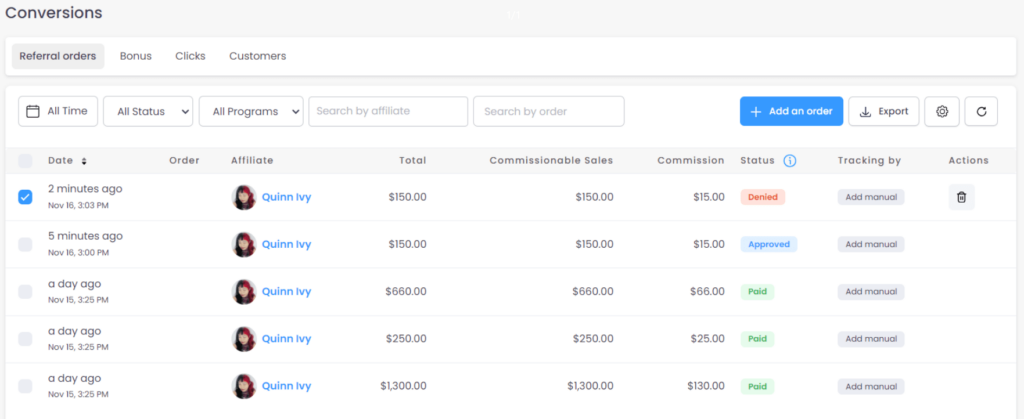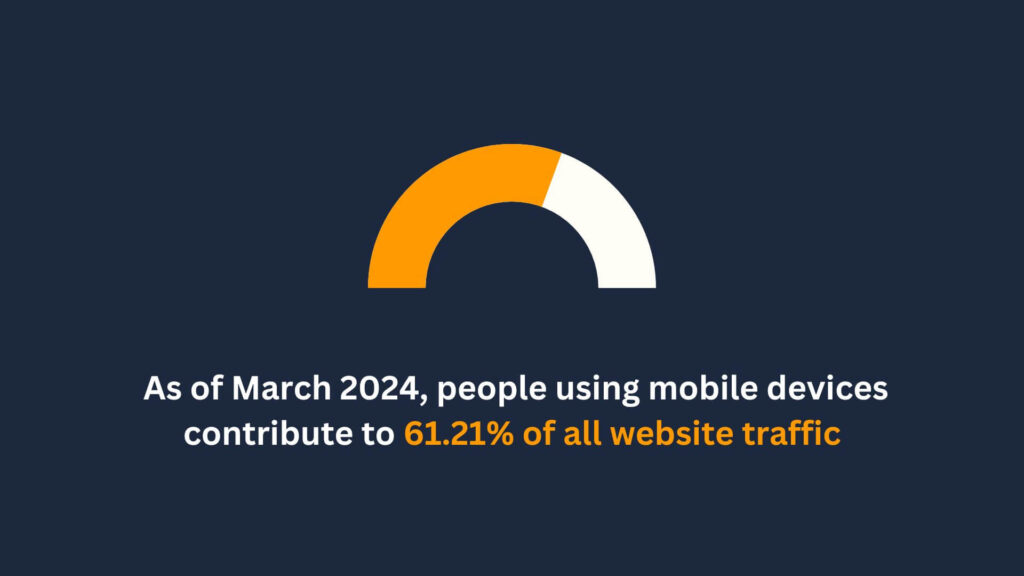Affiliate marketing appeared in the early 1990s, it had experienced various trends to bloom in the early 2020s.
Affiliate marketing has demonstrated its effectiveness, with over 80% of businesses, including major ones, adopting this model. This indicates significant competitiveness within the field, as affiliate marketing continually evolves with changing trends in recent years.
The industry is expected to be a major player in e-commerce, with projections estimating affiliate marketing spending to reach $15.7 billion globally by 2024.

How Affiliate Marketing Has Changed in the Last Few Years?
Affiliate marketing was not really popular until the last half of 2010s. Till now, it has experienced some major changes in its operation and its areas of focus. Here are some main evolutions:
- Globalization: With the emergence of the internet, affiliates, affiliate can be done from anywhere in the world. A U.S.-based merchant who targets a new market in South Asia can expand their reach by working with local affiliates. In turn, affiliates diversify their source of income by working with various advertisers from around the globe.
- Shift to Performance-Based Models: Traditionally, affiliate marketing operated on a pay-per-sale (PPS) model. However, over the years, there has been a shift towards more performance-based models, including pay-per-click (PPC), pay-per-lead (PPL), and pay-per-action (PPA).
- Affiliate marketing has expanded to all Niches: While certain niches like fashion and beauty have historically been popular in affiliate marketing, there’s been a trend towards diversification. Affiliate marketing is proven to be working in all niches, including health and wellness, technology, finance,…
Coming to 2024, there are some irreversible trends that will shape the future of affiliate marketing. Let’s check out the trend of affiliate marketing landscape in 2024:
1. AI Integration
The emergence of Chat GPT was followed by multiple AI models and of course, generated various AI applications. Right now, most of the marketing tasks can be done by AI, with modest modifications from a human being.
AI can automate both repetitive & creative tasks like content creation, campaign management, or even personalized content. Even advanced creatives such as works of music also can be created with A.I today. Over 80% of creators consider A.I an indispensable tools in their job.
The A.I-powered features that benefit merchants include:
- Finding and checking out potential partners and their audiences.
- Deciding whether to accept or reject affiliate applications based on predesigned standards.
- Spotting and stopping any cheating or dishonest behavior.
- Giving personalized help to affiliates.
- Extract insights from data of affiliate programs.
Artificial intelligence (AI) is poised to change the game in affiliate marketing.
Related article: 09 reasons Affiliate Marketing is booming in the 21st century! will explain why affiliate marketing has been growing so fast and how it is projected to grow in the next decade.
2. Hybrid affiliate compensation model:
Just to make it clear: Influencer marketing is traditionally defined by sponsored promotions (including product giving, and flat fees) – they earn regardless of how many sales are generated. Meanwhile, affiliate marketing is performance-based, which means the more sales generated via the link, the more commission the affiliates earn.
However, in many cases, influencers earn commission and get sponsorship at the same time. Affiliate commission help brands detect which influencers are actually driving sales. In many cases, brands transform top-performing affiliates into their exclusive influencers (so-called brand ambassadors).
Though influencer marketing is always on trend due to its high effectiveness: 73% of consumers purchase because of seeing an influencer’s recommendation. But, it does not mean it is more effective than affiliate marketing.
The average rate of ROI (Return-on-investment) of influencer marketing & affiliate marketing is ~500% and 1,400% respectively. Influencer marketing is not considered a part of affiliate marketing, but rather a complementary strategy. However, this model becoming increasingly intertwined with affiliate marketing.
3. Brands are partnering with nano & micro-influencers
While macro-influencers have traditionally been popular choices for affiliate marketing collaborations, micro-influencers and nano-influencers are becoming a choice of trend.
Brands are partnering with micro-influencers (10,000-100,000 followers) and nano-influencers (under 10,000 followers).
A study by Markerly (2020) found that nano-influencers typically have a 4%-8% like rate, with the highest coming from individuals having less than 1,000 followers. Meanwhile, micro-influencers experienced a significantly lower rate, which is 2.4%.
We expect to see a rise in collaborations with nano and micro-influencers who have engaged communities in specific niches.
A report by SocialPubli found that micro-influencers generate 22.2 times more conversations than the average consumer. Plus, 82% of consumers are highly likely to follow a recommendation made by a micro-influencer.
4. The Increase of Subscription Models
In the early 2010s and prior, people buy music albums or singles, either in physical form (CD) or digital downloads, for a one-time payment.
Now every service shift to a subscription-based Model. Take Spotify for example.
Today 2024, you have a vast majority of music to choose from, and Spotify allows you to afford and access them from anywhere. In turn, you pay a monthly fee.
The same things happened to movies (e.g. Netflix) or even language learning (e.g. Duolingo)

It is clearly a major shift in the service business model. It has transformed the way people consume, and, of course, transformed the affiliate marketing industry.
This model simply brings a lot of convenience for the user – no harsh commitment, cancel anytime.
In 2021, the revenue growth rates of subscription businesses within the SEI surpassed those of companies listed on the S&P 500, with subscription-based businesses achieving a year-over-year (YOY) growth rate of 16.2%, compared to 12% for S&P 500 companies.
5. B2B partnerships
Advertisers and publishers are seeking fresh ways to engage in each other’s marketing strategies.
Brands and affiliates are forging tighter partnerships, moving past the typical affiliate arrangements. They’re collaborating on content creation, co-hosting webinars, and considering revenue-sharing models to boost partner motivation.
This trend allow deeper collaboration with affiliates is prompting businesses to adopt a more unified approach to partnerships. Program managers will have to collaborate with other teams to execute joint campaigns effectively.
Affiliate managers might team up with:
- SEO teams for swapping strategic links
- Sales teams for showcasing products
- PR teams for doing live interviews or expert-led podcast episodes
- Content marketing teams for guest blog posts
The future of affiliate marketing is in collaboration. We’ll see a shift towards unified partnerships where brands and affiliates work together to develop and execute winning strategies.
HubSpot found that experts see B2B affiliate marketing as a key trend in 2024, with more businesses exploring its potential.
6. Data-driven decisions
Affiliate marketing is becoming increasingly data-driven.
As there are more and more affiliates applying various approaches to promotion joining the game, advertisers can collect data from various sources.
As the nature of the performance-based business model, the analysis-optimization process can be operated continuously. Here are the main metrics that always need to improve for a better marketing campaign:
- Revenue: The total income generated through the affiliate program. It’s the ultimate measure of success.
- Net Monthly Sales: The number of sales attributed to affiliates during a specific month.
- Clicks: The total clicks on affiliate links provided by tracking software.
- Earnings per Click (EPC): The average revenue generated per click.
- Effective Earnings per Click (eEPC): Adjusted EPC considering refunds or cancellations.
- Top Affiliates: Identifying high-performing affiliates.
Performance-based commissions and a focus on results will be key for successful partnerships.
Not the brand only but also affiliates can benefit from data analysis. With many metrics given, affiliates can literally measure the success of affiliate marketing campaigns and find insight from data.
Today, most affiliate management platforms allow merchants to track and record data from affiliates. A complete data dashboard like this one from BixGrow may provide you with game-changer insights!

7. Voice-search SEO
With the rise of voice search, affiliates will need to optimize their content for long-tail keywords and conversational language to ensure they are discoverable through search.
This trend is projected to spread across various platforms, but will particularly focus on Google and Youtube.
By 2024, the global count of operational voice assistant devices is expected to double, reaching 8.4 billion units. It’s projected that approximately 80% of voice searches will adopt a conversational style, moving away from conventional search techniques.

These are just some of the trends that are shaping affiliate marketing in 2024. By staying ahead of the curve and embracing these trends, affiliates can position themselves for success in the ever-evolving digital marketing landscape.
8. Visuals-lead promotion
Video platforms like YouTube, TikTok, and Instagram Reel are thriving.
“Compared to TikTok, which overall registers a watch rate of 9.06% on average, Instagram Reels score an average watch rate of 13.08%. As for YouTube Shorts, they come third, with a 2.52% watch rate on average.”
SocialInsider Blog
HubSpot reported that 54% of consumers want to see more video content from brands they support. Cisco projected that by 2022, online videos will make up more than 82% of all consumer internet traffic, indicating a growing preference for video content consumption.
This will followed by advertisers focusing on making marketing materials that can facilitate social media, content creators.
9. Mobile Optimization
Every person in this world will own a smartphone someday, so smartphone-optimized content is definitely a growing trend in of affiliate marketing.
With the increasing use of smartphones for online shopping, affiliate marketers must prioritize mobile optimization. This includes ensuring that websites, landing pages, and promotional materials are all mobile-friendly and provide a seamless user experience.
Google’s Mobile-First Indexing prioritizes mobile-optimized websites in search results, emphasizing the importance of mobile-friendly design.
The discrepancy between active social media users (4.2 billion) and active mobile social media users (4.15 billion) is small. Not surprisingly, this is leading to people spending more time on their phones than ever before.
As of March 2024, people using mobile devices contribute to 61.21% of all website traffic

Power your business with your first affiliate program
As we wrap up our look at the top affiliate marketing trends for 2024, it’s clear affiliate marketing is an effective marketing model. However, merchants really need to catch up with current trends to run an effective affiliate program.
If you’re starting out and using Shopify, consider using BixGrow to manage your affiliate program. Here are some of our top-notch features:
- It allows seamless affiliate marketing across platforms like TikTok, Instagram, YouTube, and blogs.
- Automatical affiliate performance tracking
- Offer various commission models, including one-time coupons, recurring commissions, and rev-share.
It’s a great tool that helps you keep track of your affiliates and make the most out of your partnerships.
So, don’t miss out on the chance to launch your first affiliate program. It could be the key to taking your business to new heights in 2024 and beyond.